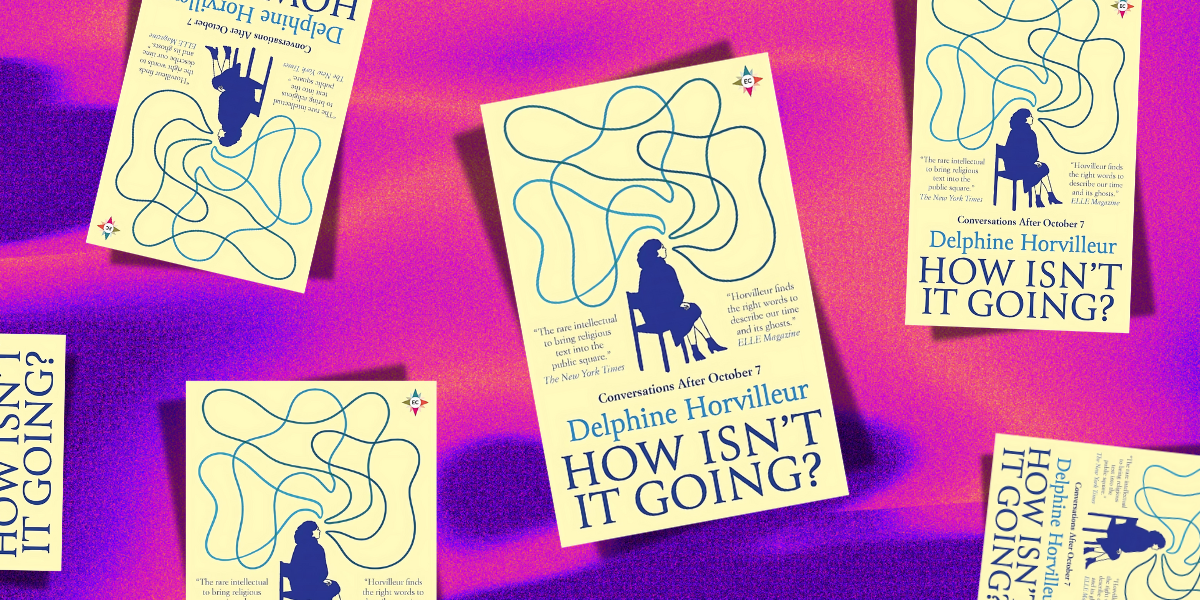Books
‘How Isn’t It Going? Conversations After October 7’

How Isn’t It Going? Conversations After October 7
By Delphine Horvilleur. Translated by Lisa Appignanesi (Europa Compass)
A personal essay collection filled with cries of pain, attempts to reconcile the time before and after October 7 and, perhaps most surprisingly, moments of humor, Delphine Horvilleur’s latest is her powerful response to the shock and fracturing of the past year—as a Jew, a woman, a mother and a leader of a Jewish community—in just 91 pages.
Horvilleur is the rabbi of Synagogue Beaugrenelle in Paris and co-leader of France’s Liberal Jewish Movement. Her opening essay, “Conversation with My Pain,” describes the impossibility of responding to the query, “How are you?” from anyone, including congregants and friends at this moment.
“Since October 7th, I carefully avoid answering it. I rid myself of all the rules of politeness,” she writes. “Or better still, I dream that the entire world understood that from now on nothing is said except in Yiddish.” All interactions, she says, should start with “Oy a broch” or “Oy vay is mir”: “Oy vay—a small espresso, as usual, thank you.”
Each title of the book’s 10 chapters begins with “Conversation”—Horvilleur’s real or imagined interactions with a host of individuals and groups. For example, “Conversation with Antiracists” unravels how antisemitism is fueled by so-called antiracism; “Conversation with My Children” explores responding to the question, “Why is this happening to the Jews again?” after her children saw images from the Hamas attacks on their phones.
In “Conversation with Jewish Paranoia,” she writes about talking with congregants frightened by the rise of French antisemitism and how the police, in their response to the harassment of Jews, have exacerbated fears. As one congregant told her: “The police knock at the door of my apartment, and they say: ‘Ok, what if you took that Mezuzah that’s hanging there down straightaway? And if not, couldn’t you perhaps change the name on your mailbox?’”
The rabbi also injects elegiac moments of optimism that lean on Jewish and Israeli traditions and on reaching out to others: a talk with an Algerian Muslim writer ends as a conversation on antisemitism and how the free thinkers in his world are pejoratively called “Jews.”
In another section, she describes why she bookended How Isn’t It Going? with a poem from Palestinian writer Mahmoud Darwish and one from Yehuda Amichai to allow readers to imagine the two deceased poets in dialogue, in a future messianic time that has them not just sharing their verses but also seeing each other’s humanity. An acknowledgment that, even at a time of oy veys, we need a little hope to cling to.
Leah Finkelshteyn is the senior editor of Hadassah Magazine.








 Facebook
Facebook Instagram
Instagram Twitter
Twitter
Leave a Reply